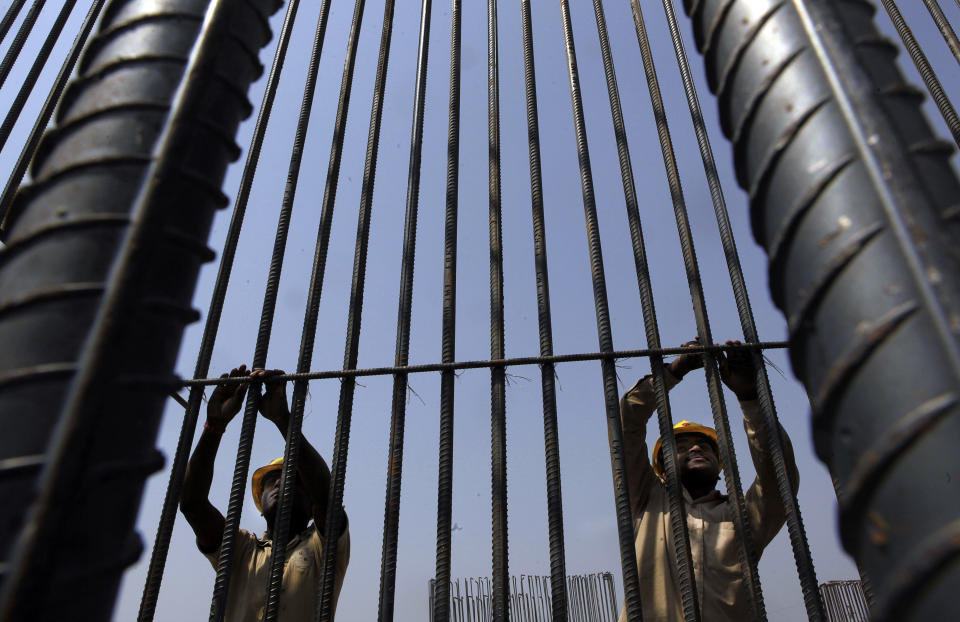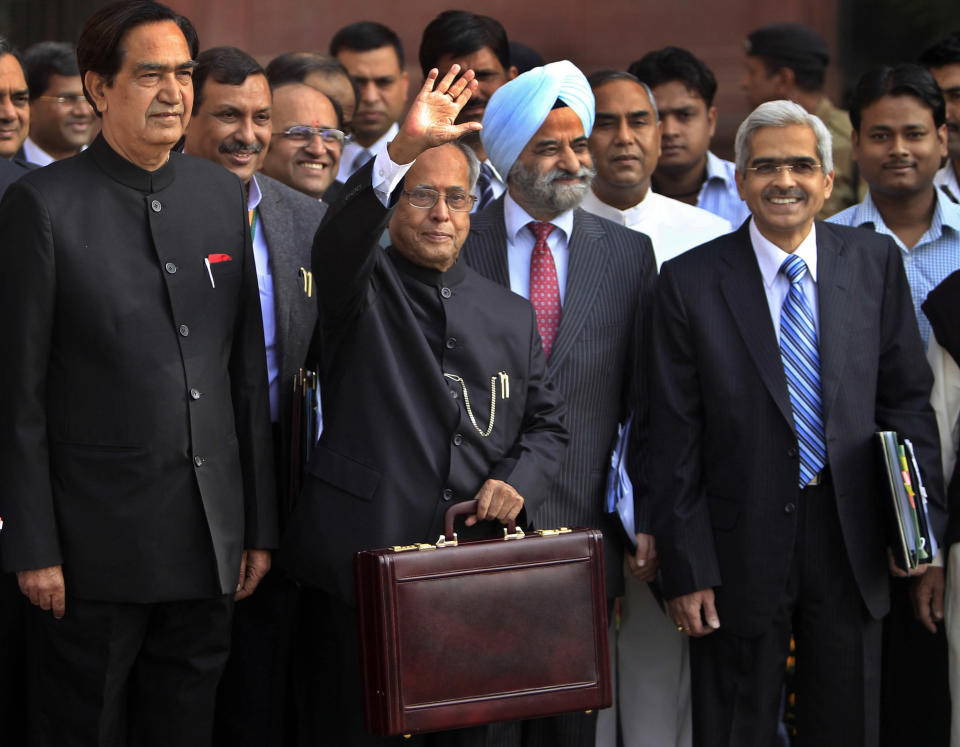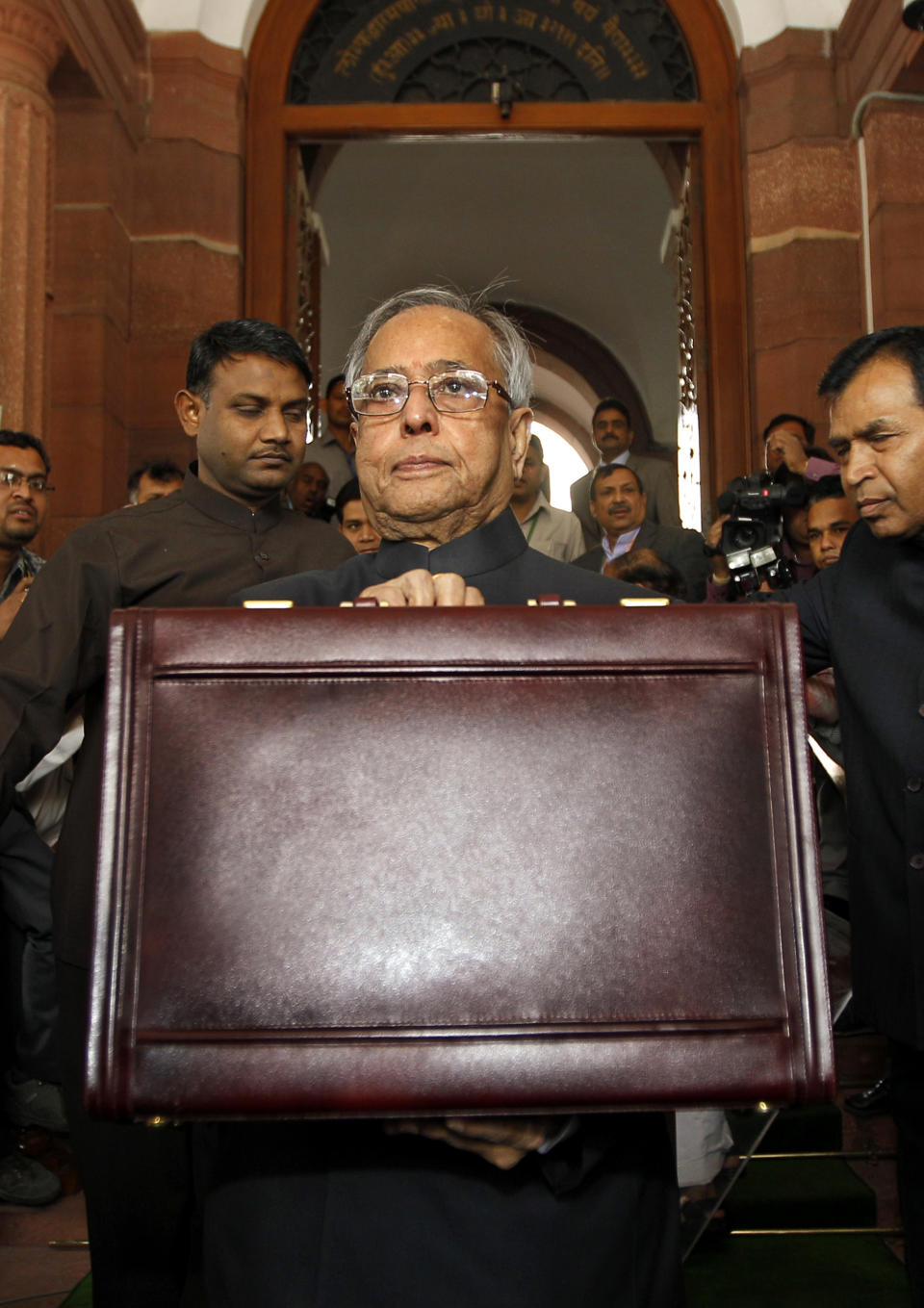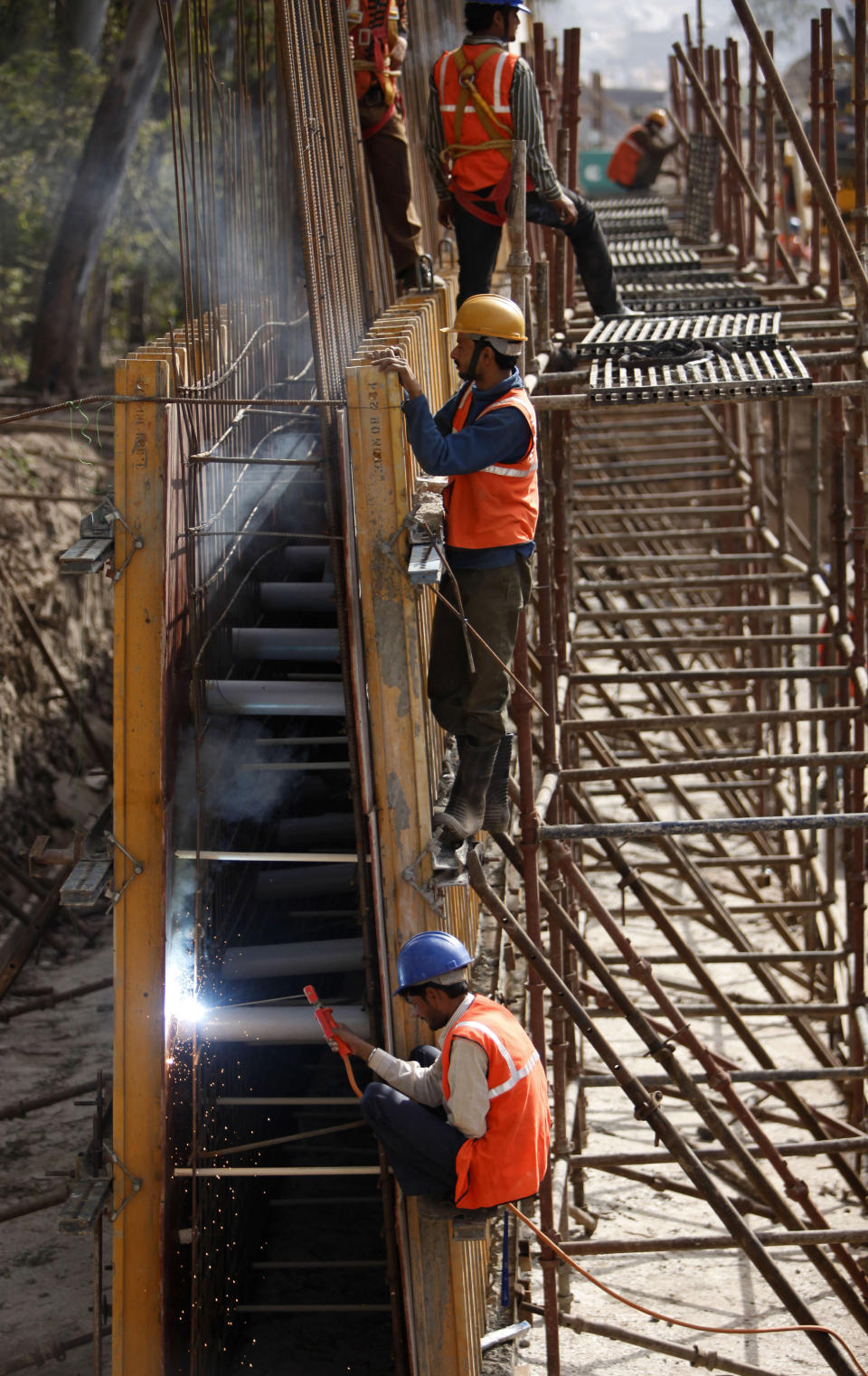India pledges to bring down budget deficit
MUMBAI, India (AP) — India pledged to reduce its deficit by capping subsidies and raising taxes in a new budget introduced Friday that gave investors little hope the weakened ruling party would enact long-promised economic reforms.
India had targeted a budget deficit of 4.6 percent of gross domestic product for the current fiscal year ending in March and will miss that by a wider margin than expected. Finance Minister Pranab Mukherjee said he now expects a deficit of 5.9 percent of GDP and forecasts it to fall to 5.1 percent in the next fiscal year.
Analysts said the new budget seemed built on a pragmatic assessment of the government's limited ability to enact its policy agenda. New Delhi has been repeatedly stymied by its coalition partners and restive state government leaders, who must come on board to pass controversial land, power and labor market reforms that could unlock growth.
"It's not smacking of confidence," said Andrew Holland, chief executive for investment advisory at Ambit Capital. "The big reforms have to come afterwards. I'm only hoping that will happen."
The benchmark Sensex index closed down 1.2 percent in Mumbai.
The budget, which must be approved by Parliament, also delivered a blow to foreign investors in the form of a new tax liability, retroactive to 1962, on overseas transfers of Indian assets.
The law would make transactions like Vodafone's $11 billion acquisition in 2007 of the Indian telecom assets of Hong Kong's Hutchison Telecommunications taxable. In January, India's Supreme Court ruled that Vodafone is not liable for up to $4.4 billion in back taxes and penalties on that deal.
"It's quite shocking," said Sudhir Kapadia, a partner at Ernst & Young. "They have done it in a manner to essentially nullify the Supreme Court verdict on Vodafone."
GE, SAB Miller, Cadbury, AT&T, Sanofi, and Vedanta are among the companies fighting tax cases in India that could be affected by the change.
Kapadia said that the move could be challenged in court, but in similar cases in the past the Supreme Court has deferred to Parliament.
"Parliament has the right to make the law," he said. "The Supreme Court only interprets it."
V. Srinivasan, the chief financial officer of Bharti Axa Life Insurance, said the move would "throw open a large amount of confusion for foreign investors."
Vodafone said it was examining the budget proposal with its lawyers.
"We do not believe this retrospective change in tax law should have any impact on the final judgment handed down by the Supreme Court in our tax case," the company said in a statement.
Mukherjee pledged to improve the quality of government spending by cutting subsidies to under 2 percent of GDP, a move the prime minister and the central bank both praised.
This year, subsidy spending swelled from unexpectedly high global oil prices, which increased the cost of India's fuel and fertilizer subsidies, he said.
Prime Minister Manmohan Singh said the government would have to adjust the prices of petroleum products — a politically difficult step — to meet subsidy targets.
"We have to bite the bullet. There is no other way in which you can reduce subsidies," he said.
Mukherjee said the government hopes to raise 300 billion rupees ($6 billion) from selling stakes in state-run companies next fiscal year. India raised about 140 billion rupees ($2.8 billion) from such asset sales this year, against an initial target of 400 billion rupees ($8 billion).
He also said the government would allow greater foreign investment in India's fund-starved aviation and power sectors, as well as in corporate debt, and doubled its allotment of tax free bonds for infrastructure projects.
Mukherjee sounded an optimistic note on the economy, saying growth will accelerate to 7.6 percent next fiscal year, up from 6.9 percent this year.
With spending budgeted to grow 18 percent, the government's ability to meet deficit targets will hinge on robust tax collection. Indian business leaders bemoaned increases of two percentage points in excise duties and service taxes as inflationary and likely to forestall interest rate cuts.
"If the fear of inflation looms large, how will interest rates come down?" said Suketu Shah, joint managing director of Mukand Ltd., a steel company. "If interest rates don't come down, how do you stimulate growth?"
___
Associated Press writer Ashok Sharma in New Delhi contributed to this report.





